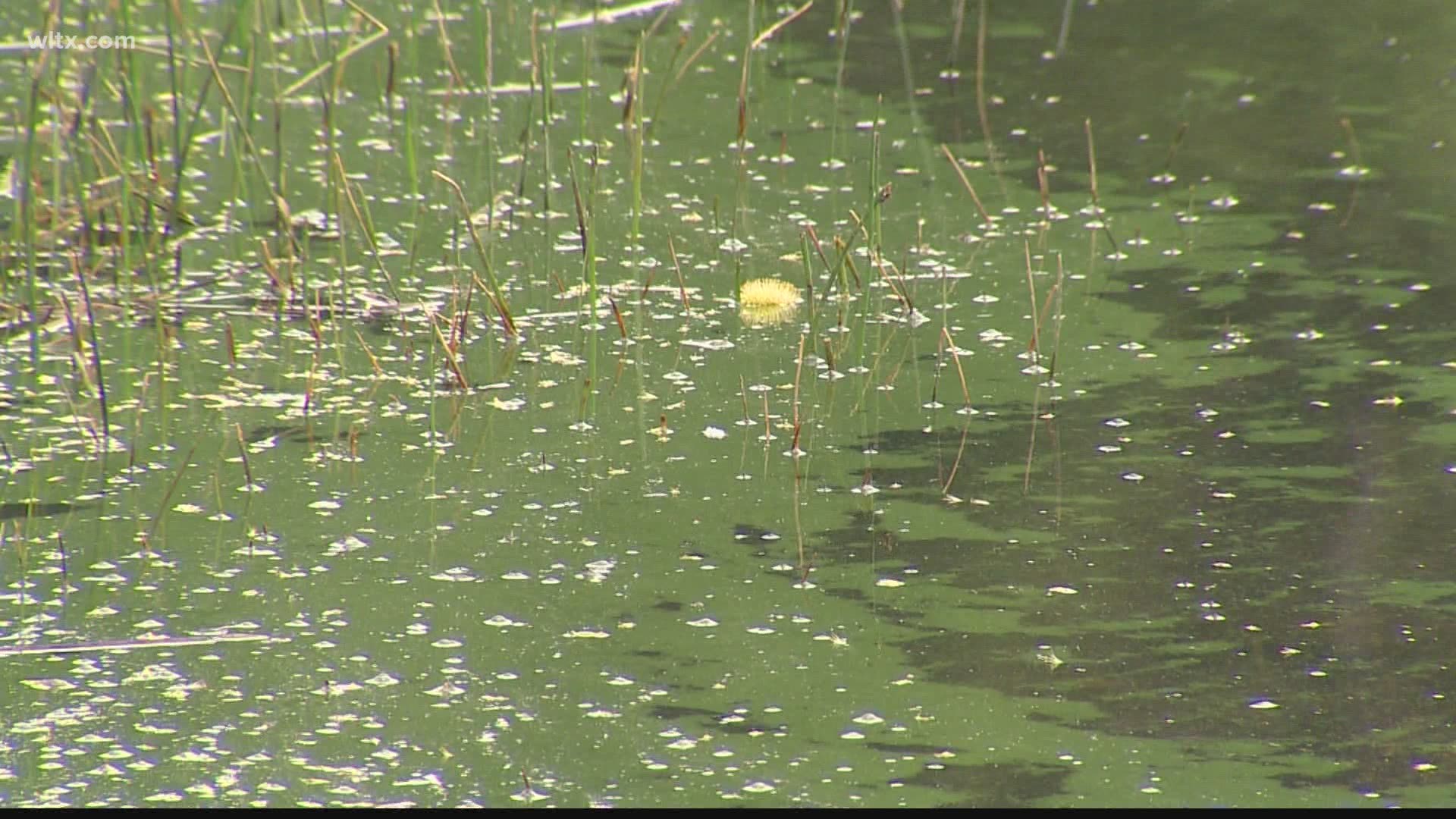FAIRFIELD COUNTY, S.C. — Health officials are warning lake goers and river floaters to look out for harmful algae blooms this summer.
Harmful algae blooms can appear in lakes, rivers and coastal waters. Their toxins can hurt people and even be deadly for pets.
“You see foam, scum. You may see a lot of discoloration of the water, it doesn't look like you're used to seeing it. Some of them have a really musky smell," said Bryan Rabon.
Rabon manages DHEC’s Aquatic Science Programs. He said harmful algae blooms pop up in the summer because they grow easier in hot conditions.
Swimming in them can come with big risks.
"They can be something as little as a skin rash to causing other nervous system issues," said Rabon. "For pets, we have seen, not in South Carolina, but there have been notations of death, that have occurred in animals, but again, not in South Carolina," he explained.
DHEC is monitoring algae found throughout Lake Wateree. The type popping up is called Lyngbya wollei. It can become harmful, but DHEC says the lake’s current levels don’t exceed toxin standards.
“We have had instances of people saying they've had rashes associated with swimming in it, but we don't know if that's actually just swimming in it or the toxins that it may be producing," said Rabon.
Regardless, he warns to stay out of it. "If it doesn't look inviting, it probably isn't.”
Lake Wateree is owned by Duke Energy. A lead scientist with the company Dr. Brett Hartis told News19 they're looking into why it's blooming more and more there.
"As far as Lyngbya populations, which is what we’re talking about on Lake Wateree, it’s one of the main ones in South Carolina that has a Lyngbya population,” he explained.
Hartis said they’re working with state agencies and universities to research why Lyngbya is showing up and what causes it.
He added that lake goers can help prevent the spread of this invasive species.
People can do things like, "keeping equipment clean; not only your boats and boat trailers, which can move Lyngbya around, but also cleaning fishing equipment, cleaning waders, cleaning swimming equipment," said Hartis.
Lyngbya is mostly found in still water and quiet coves of the lake. Hartis said Duke Energy will be surveying the waters in August for algae blooms and other invasive species.
If you see harmful algae blooms in South Carolina’s lakes, rivers or even the coast, you can report it to DHEC.
To report harmful algae blooms online, click here.
DHEC can also be emailed about the blooms at wtr_asp_hab@dhec.sc.gov

